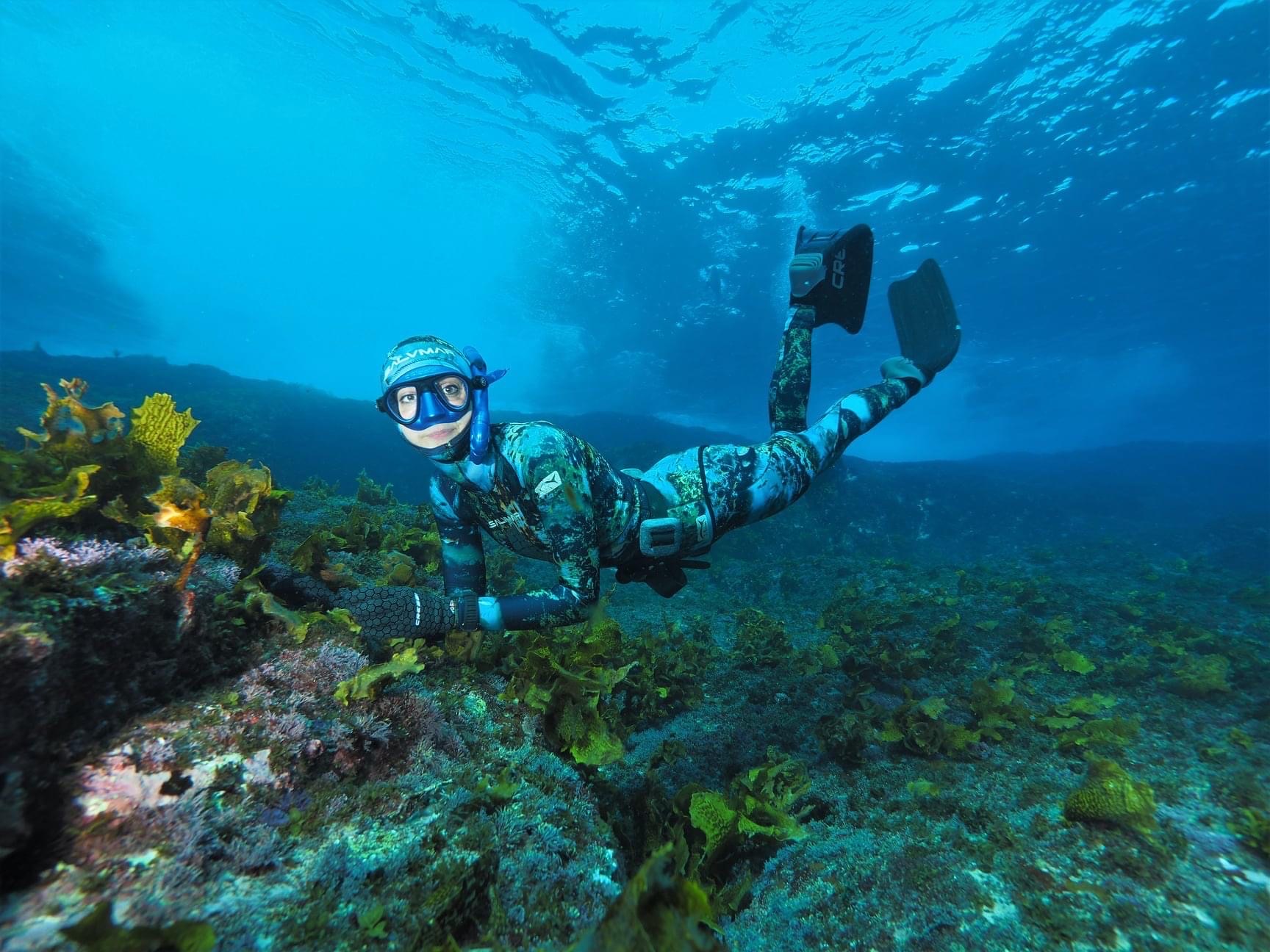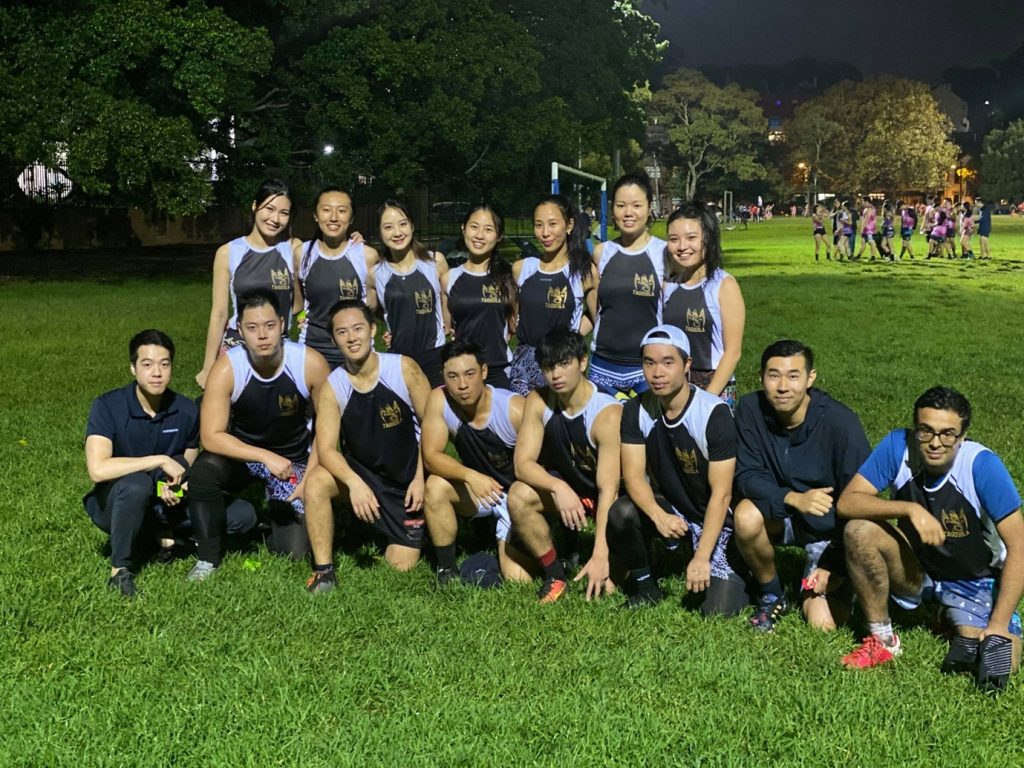By Yongxin Lyu
In the vast world of science, there are extraordinary people who dedicate their lives to unravelling the mysteries of our planet. One such amazing scientist is Jadranka Nappi, a marine microbiologist with an insatiable curiosity and a deep love for the ocean. Originally from Italy, Jadranka’s journey led her to the shore of Australia, where she embarked on a path that combines studying and working with marine creatures, uncovering the fascinating world of marine microbiology. Let’s dive into Jadranka’s story and explore the wonders she encounters every day.
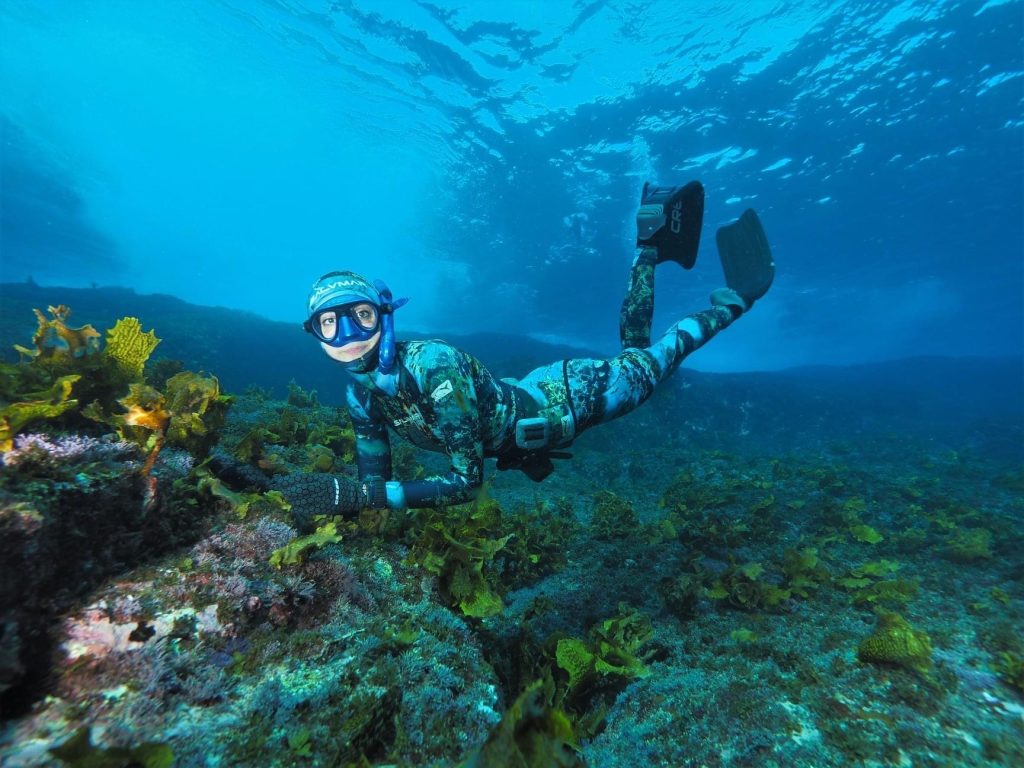
Immersed in Passion: Jadranka’s Journey into Marine Microbiology
Jadranka, also known as Jadi, comes from a diverse background with Italian and Serbian roots. Her connection to the sea is embodied in her Serbian name “Jadranka”, which echoes the Adriatic Sea, a part of the Mediterranean Sea separating Italy and Croatia. Growing up, Jadi has been captivated by the enchanting wonders of marine life. Driven by an insatiable curiosity, she set her sights on becoming a marine biologist from an early age.
As she delved deeper into her undergraduate studies in marine biology in Italy, her fascination with the ocean only grew stronger. “I always had the dream to study humpback whales, and to be in the ocean all the time. It is under the waves where I am at my happiest”. When it came to her final project, an exciting opportunity came to explore the world of marine microbiology overseas. Jadi packed her bags and set off on a life-changing adventure to Australia.
Stepping into the new field of marine microbiology was a challenge for Jadi, but she enjoys the excitement of exploring new things. Several months as an exchange student in Sydney eventually led to 11 years of an academic journey dedicated to studying bacteria in the ocean. After completing a PhD in biotechnology at UNSW, Jadi secured a postdoctoral fellowship in the Centre of Marine Science and Innovation, collaborating with CSIRO, Australia’s national science agency.
Uniting Academia and Industry: Jadranka’s Exciting Collaborations
Jadi’s academic journey took an exciting turn when she entered her postdoctoral research which involves collaboration with an industry partner under the SIEF Ross Metcalf STEM + Business Fellowship with CSIRO. This unique collaboration allows Jadi to blend her knowledge of microbiology with insights from the business world. “I bring my knowledge about microbiology and bacteria, but I am also constantly learning about aquaculture, absorbing knowledge from every single person who works at the facility. I share successes and challenges with everybody, and I see how every day we all work towards the same goal. I am part of an incredible team”.
Jadi finds great fulfilment in collaborating with the industry, appreciating the diverse knowledge and different approach it brings. The exchange of expertise creates a rich learning experience, where she constantly learns something new every single day.
A Life between Waves and Lab Coats: Jadranka’s Daily Pursuits
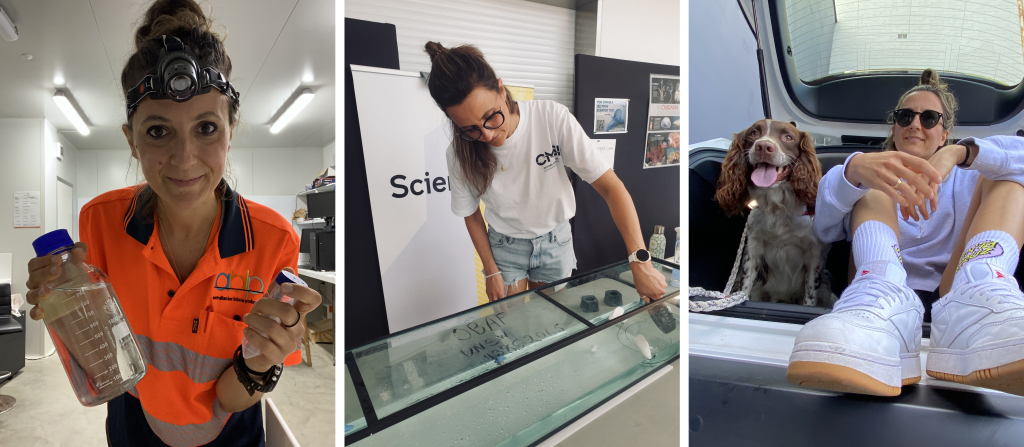
Jadi’s typical day is a dynamic mix of exciting fieldwork, laboratory analysis and academic responsibilities, depending on whether she is on field trips or back in Sydney. During field trips, she wakes up super early to embark on her marine research adventure. Working with marine animals in an aquaculture facility, Jadi takes care of them, does treatments, and collects samples. These samples are quickly processed in the on-site laboratory before being taken back to Sydney for further analysis.
Back in Sydney, Jadi’s day is quite different. The morning starts with walking her lovely dog, Argo. During the day, Jadi immense herself in office work, engaging in data analysis and writing research papers. Apart from doing research, Jadi also enjoys assisting PhD and honours students with their experiments and data analysis.
Diving into Discovery: Jadranka’s Dual Life as a Researcher and Diver
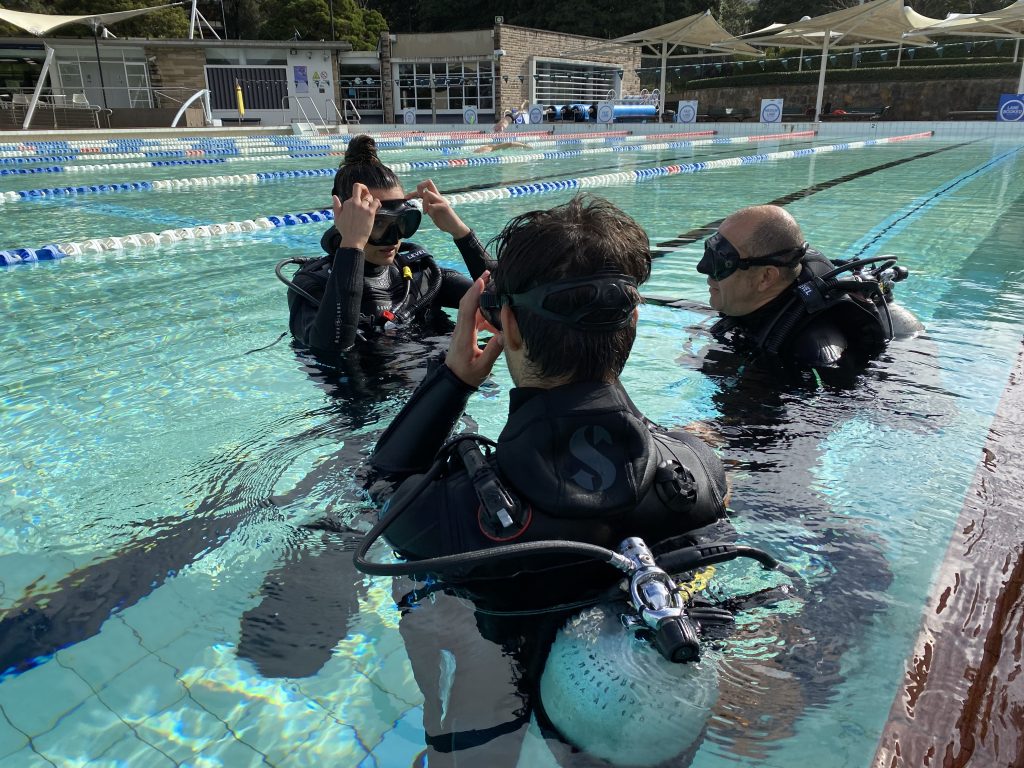
Jadi’s love for the ocean goes beyond her scientific work. Scuba diving and freediving are her greatest passions. Being in the water allows her to escape and find balance in her academic life, recharging her spirit. During her PhD studies, she worked as a scuba diving instructor on weekends, feeding her passion for underwater exploration.
Inspiring the Next Generation: Jadranka’s Advice to Young Science Enthusiasts
With a strong desire to encourage young girls to pursue careers in STEM, Jadi has some valuable advice. She emphasizes the importance of curiosity and the courage to explore different fields. Jadi believes that by following their passions and being driven by patience and curiosity, young scientists can find fulfilment in their chosen paths. “Don’t be afraid of looking for something new, different from everything you know already. If you follow what makes you excited and a little scared at the same time, and if you do it with passion and eager to learn new things, it will take you somewhere incredible”. She encourages them to fearlessly pursue their interests, knowing that it is through curiosity and persistence that ground-breaking discoveries are made.
Jadi’s journey into marine microbiology is an inspiring tale of passion, exploration, and the deep connection between science and the ocean. Her story reminds us that by following our curiosity and embracing the wonders of the natural world, we can unravel the mysteries that lie beneath the surface. Jadi’s work continues to shed light on the hidden world of marine microbes, inspiring future generations of scientists to dive into the thrilling realm of marine biology.
Follow Jadranka on Twitter: @JadrankaNappi
Email: j.nappi@unsw.edu.au

